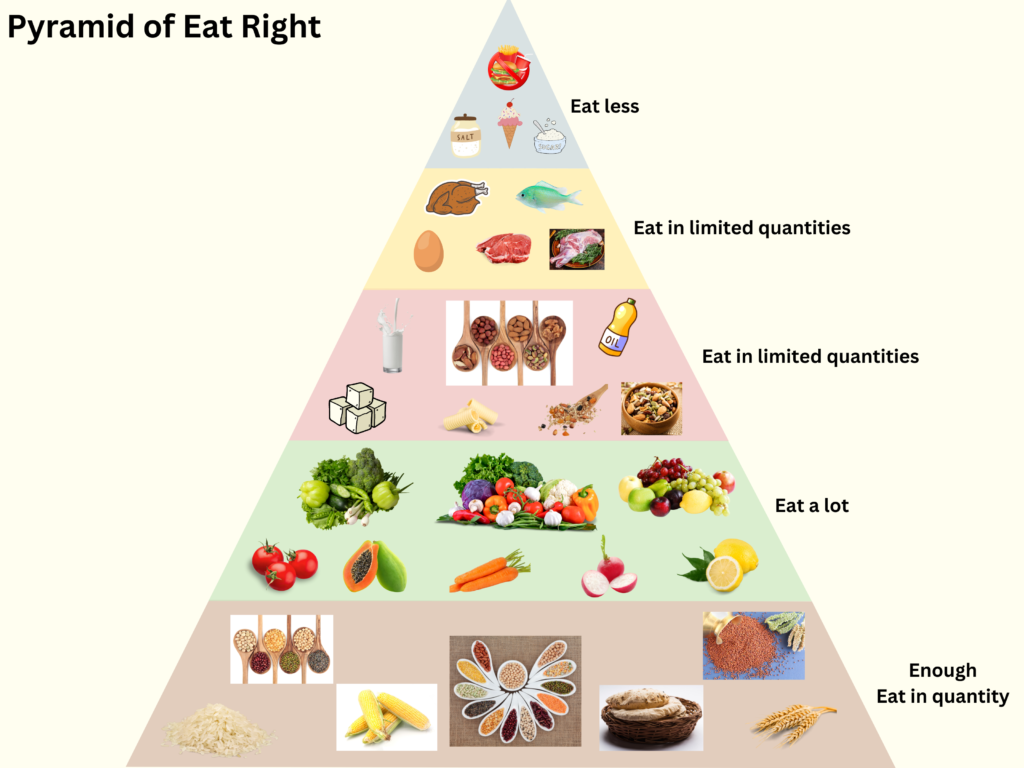

Sure! Eating the right foods is essential for athletes and fitness enthusiasts to fuel their bodies properly and support performance and recovery. Here are some key guidelines for a well-rounded diet for sportspeople and those focused on fitness:
1. Lean Proteins: Protein is crucial for muscle repair and growth. Opt for lean sources such as chicken, turkey, fish, lean beef, eggs, tofu, legumes, and low-fat dairy products.
2. Complex Carbohydrates: Carbohydrates are the primary source of energy for athletes. Choose complex carbohydrates like whole grains (brown rice, quinoa, whole wheat bread), fruits, vegetables, and legumes. These provide sustained energy release and essential nutrients.
3. Healthy Fats: Incorporate sources of healthy fats such as avocados, nuts, seeds, olive oil, and fatty fish (salmon, mackerel, sardines). Healthy fats support hormone production, joint health, and overall well-being.
4. Hydration: Proper hydration is vital for performance and recovery. Drink plenty of water throughout the day, especially before, during, and after exercise. Electrolyte-rich fluids like coconut water or sports drinks can be beneficial during intense workouts or prolonged exercise sessions.
5. Fruits and Vegetables: Aim to include a variety of colorful fruits and vegetables in your diet to provide essential vitamins, minerals, and antioxidants. These support immune function, reduce inflammation, and aid in recovery.
6. Pre-Workout Fuel: Consume a balanced meal or snack containing carbohydrates and protein before exercise to provide energy and support muscle function. Examples include a banana with almond butter, Greek yogurt with berries, or a turkey and whole-grain wrap.
7. Post-Workout Recovery: Refuel your body within 30-60 minutes after exercise with a combination of carbohydrates and protein to replenish glycogen stores and promote muscle repair. Good options include a protein shake with banana, chocolate milk, or a turkey and vegetable stir-fry with brown rice.
8. Portion Control: Pay attention to portion sizes to ensure you’re consuming the right amount of nutrients for your activity level and goals. Balance your plate with appropriate servings of protein, carbohydrates, and fats.
9. Limit Processed Foods and Sugary Snacks: Minimize intake of processed foods, sugary snacks, and beverages high in added sugars, as these can lead to energy crashes and hinder performance.
10. Individualized Approach: Every athlete’s nutritional needs are unique, so consider consulting with a registered dietitian or sports nutritionist to develop a personalized nutrition plan tailored to your specific goals, dietary preferences, and training regimen.
By focusing on nutrient-dense whole foods, staying hydrated, and timing meals and snacks appropriately around workouts, athletes and fitness enthusiasts can optimize their performance, support recovery, and maintain overall health and well-being.
The importance of eating right for sportspeople and fitness enthusiasts cannot be overstated. Here’s why it’s crucial:
1. Optimized Performance: Proper nutrition provides the energy and nutrients necessary to fuel workouts and support optimal performance. Carbohydrates, in particular, are the primary fuel source for high-intensity exercise, while protein aids in muscle repair and growth.
2. Enhanced Recovery: Nutrient-rich foods help speed up recovery time by replenishing glycogen stores, repairing muscle tissue, and reducing inflammation. Consuming the right combination of carbohydrates and protein after exercise can facilitate muscle recovery and adaptation.
3. Injury Prevention: A well-balanced diet rich in vitamins, minerals, and antioxidants supports immune function and helps prevent injuries. Nutrient deficiencies can weaken the immune system and increase the risk of illness and injury, potentially sidelining athletes from training and competition.
4. Body Composition: Eating a nutritious diet plays a critical role in achieving and maintaining a healthy body composition. Proper nutrition supports muscle development, fat loss, and overall body composition goals, leading to improved performance and aesthetics.
5. Energy Levels and Endurance: Adequate intake of carbohydrates ensures sustained energy levels during prolonged exercise sessions, enhancing endurance and preventing fatigue. Consuming a balanced diet with a variety of macronutrients provides the energy needed for peak performance.
6. Mental Focus and Concentration: Nutrient-dense foods supply the brain with the necessary nutrients to maintain mental focus, concentration, and cognitive function. Proper hydration is also essential for cognitive performance and decision-making during training and competition.
7. Long-Term Health: Adopting healthy eating habits early on and maintaining them throughout an athletic career can have long-term benefits for overall health and well-being. A balanced diet reduces the risk of chronic diseases such as obesity, diabetes, cardiovascular disease, and certain cancers.
8. Consistency and Sustainability: Eating a well-rounded diet that includes a variety of nutrient-dense foods promotes consistency and sustainability in training and competition. Proper nutrition supports overall health, energy levels, and motivation, helping athletes stay committed to their goals over the long term.
In summary, eating right is essential for sportspeople and fitness enthusiasts to optimize performance, support recovery, prevent injuries, achieve body composition goals, maintain energy levels, and promote long-term health and well-being. By prioritizing nutrition and fueling their bodies with the right foods, athletes can reach their full potential and excel in their respective sports and fitness pursuits.